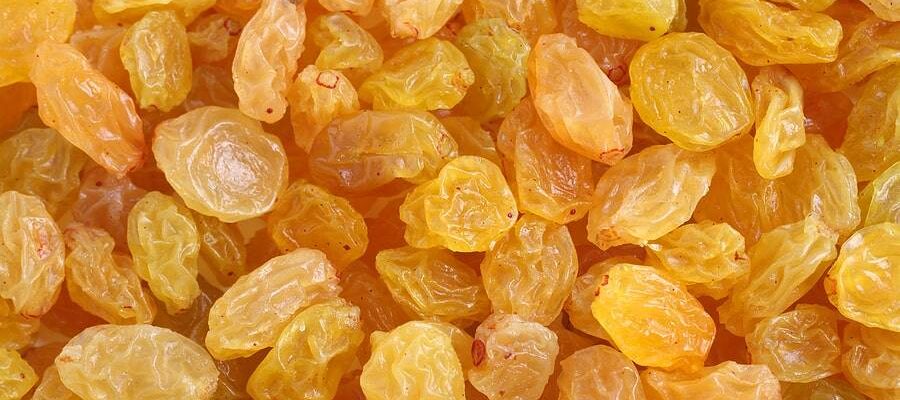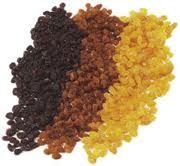
Are Old Raisins Bad for You
Old Raisins
Raisins are a popular snack known for their sweet taste and nutritional benefits. However, as with any dried fruit, you might wonder whether eating old raisins can be harmful. This article explores the potential risks and benefits of consuming old raisins and offers tips on how to store them properly.

raisin 3
What Happens to Raisins as They Age?
Changes in Texture and Flavor
As raisins age, they naturally lose moisture, becoming harder and less chewy. This change in texture might make them less enjoyable to eat, but it doesn’t necessarily mean they are unsafe. However, old raisin can develop a stale or off flavor, which can be a sign that they are past their prime.
Nutritional Degradation
Over time, the nutritional value of raisin can degrade. Vitamins and minerals may diminish, particularly if the raisins are not stored properly. While they may still provide some nutrients, old raisin may not offer the same health benefits as fresher ones.
Are Old Raisins Safe to Eat?
Mold and Contamination Risks
One of the primary concerns with old raisin is the potential for mold growth. Mold can develop if raisin are stored in a damp environment or if they have been exposed to moisture. Consuming moldy raisin can lead to food poisoning, so it’s crucial to inspect them for any signs of mold before eating.
Impact on Digestion
Eating old, hard raisin may be difficult to digest for some people, especially those with sensitive teeth or digestive issues. The tough texture can also be a choking hazard, particularly for children and the elderly.
How to Store Raisins to Maximize Freshness
Proper Storage Techniques
To keep raisin fresh for as long as possible, store them in an airtight container in a cool, dark place. Refrigeration can extend their shelf life, but make sure they are sealed to prevent them from absorbing odors from other foods.
https://raisinexporter.com/2024/07/22/raisin-farming/
Signs It’s Time to Discard Raisins
Even with proper storage, raisin can eventually go bad. If they develop a sour smell, taste off, or show any signs of mold, it’s best to discard them. While it might be tempting to salvage them by washing or cooking, this won’t eliminate any toxins that might have developed.
Old Raisins
Raisins are a popular snack known for their sweet taste and nutritional benefits. However, as with any dried fruit, you might wonder whether eating old raisins can be harmful. This article explores the potential risks and benefits of consuming old raisins and offers tips on how to store them properly.

raisin 3
What Happens to Raisins as They Age?
Changes in Texture and Flavor
As raisins age, they naturally lose moisture, becoming harder and less chewy. This change in texture might make them less enjoyable to eat, but it doesn’t necessarily mean they are unsafe. However, old raisin can develop a stale or off flavor, which can be a sign that they are past their prime.
Nutritional Degradation
Over time, the nutritional value of raisin can degrade. Vitamins and minerals may diminish, particularly if the raisins are not stored properly. While they may still provide some nutrients, old raisin may not offer the same health benefits as fresher ones.
Are Old Raisins Safe to Eat?
Mold and Contamination Risks
One of the primary concerns with old raisin is the potential for mold growth. Mold can develop if raisin are stored in a damp environment or if they have been exposed to moisture. Consuming moldy raisin can lead to food poisoning, so it’s crucial to inspect them for any signs of mold before eating.
Impact on Digestion
Eating old, hard raisin may be difficult to digest for some people, especially those with sensitive teeth or digestive issues. The tough texture can also be a choking hazard, particularly for children and the elderly.
How to Store Raisins to Maximize Freshness
Proper Storage Techniques
To keep raisin fresh for as long as possible, store them in an airtight container in a cool, dark place. Refrigeration can extend their shelf life, but make sure they are sealed to prevent them from absorbing odors from other foods.
https://raisinexporter.com/2024/07/22/raisin-farming/
Signs It’s Time to Discard Raisins
Even with proper storage, raisin can eventually go bad. If they develop a sour smell, taste off, or show any signs of mold, it’s best to discard them. While it might be tempting to salvage them by washing or cooking, this won’t eliminate any toxins that might have developed.